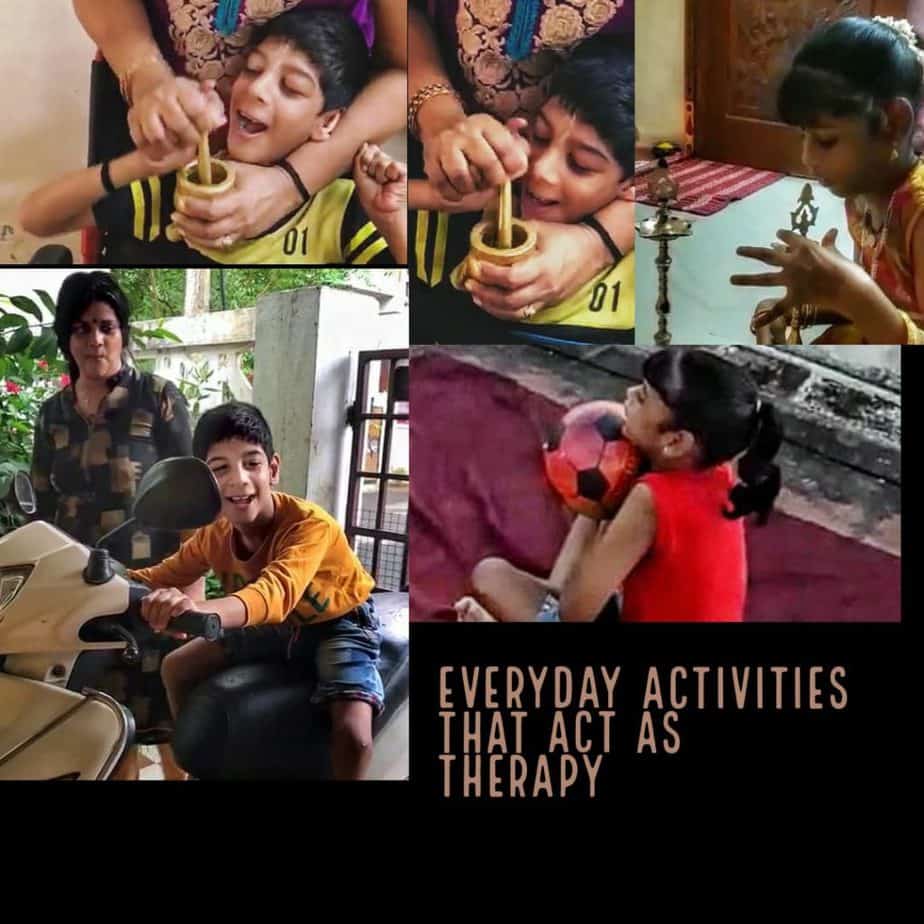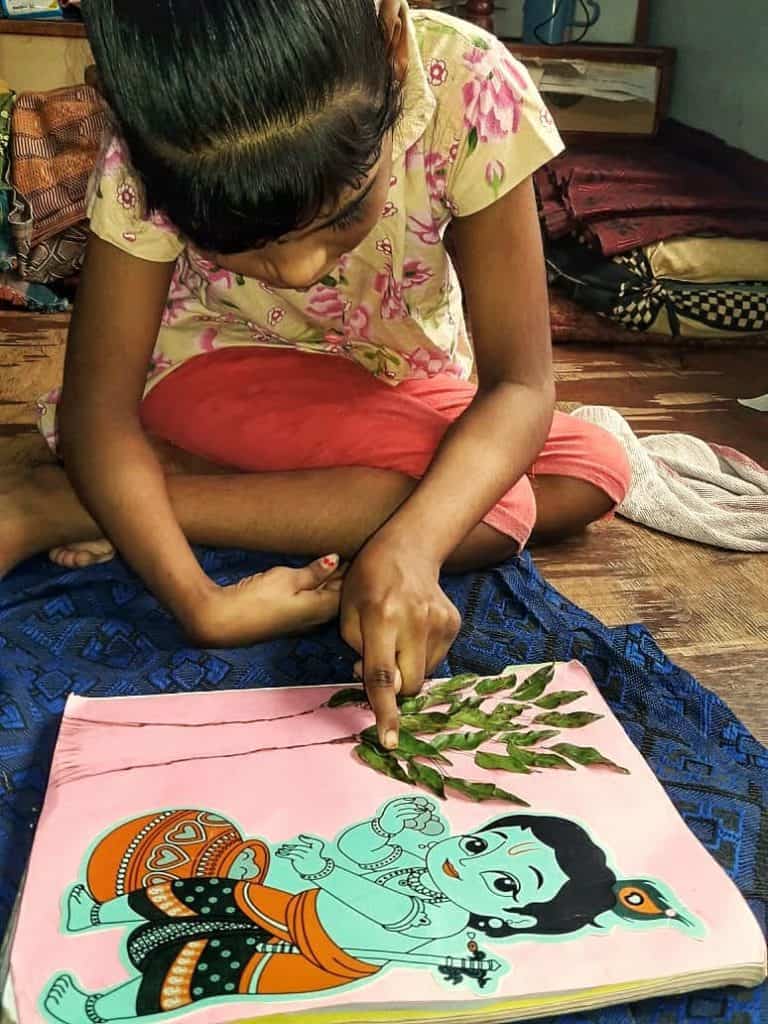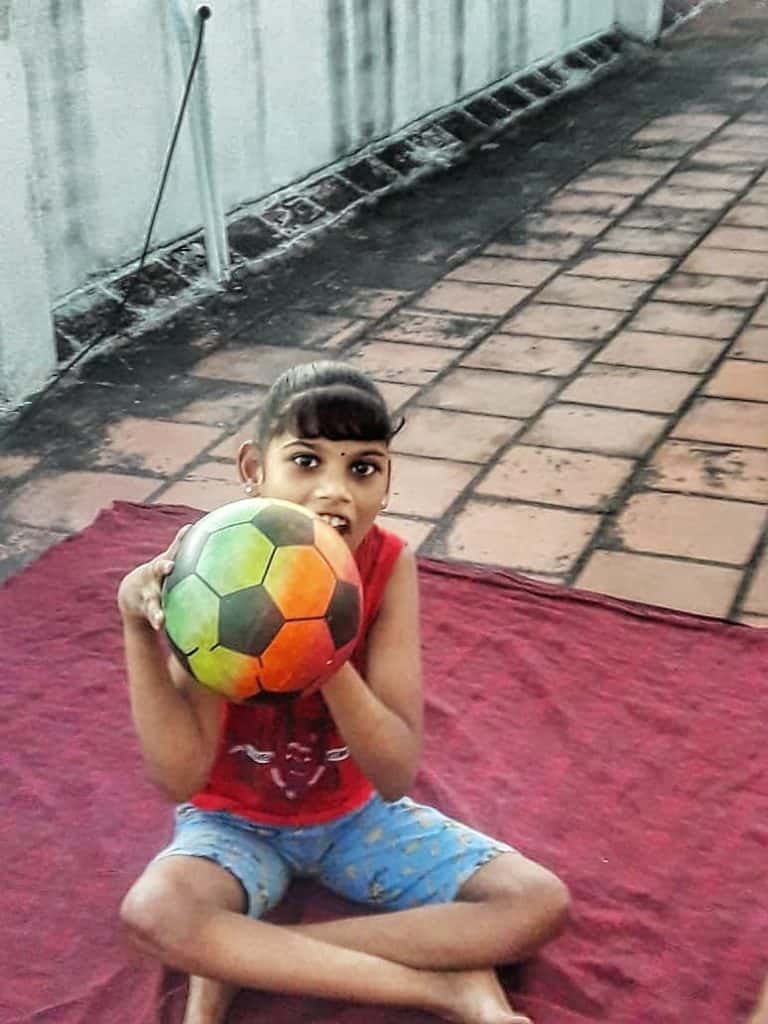It is the morning jamming sessions that excites Srihari S Nair the most these days. Every morning, the 12-year-old gets ready, sits by the window and gently taps his fingers on the piano. Soon music fills the rooms, as his parents and piano master listen intently and Srihari’s eyes sparkle with joy. His master even corrects some of the notes.
In reality, though it is his sister, sitting next to him, who is creating the music under the guidance of their teacher, but the collaborative exercise brings great joy to the boy. More importantly though, these jamming sessions act as therapy for Srihari, who has cerebral palsy (CP).
According to the Centers for Disease Control and Prevention, cerebral palsy is caused due to abnormal brain development or damage to the developing brain. A common motor disability in childhood, cerebral palsy affects a person’s ability to move and maintain posture and balance.
It is not just that he enjoys the music, but the rhythm of the music also induces movement in his fingers, an essential muscle maintenance activity that would otherwise be guided by his therapist in the special school or by the private clinics that charge at least Rs 500 per session.
The lockdown, however, has made it imperative for parents to explore alternative ways of therapy through common activities at home — like playing the piano, or helping make coffee or doing the dishes. Thus ever since the lockdown started, these piano sessions have been a routine affair in the Nair household, that also helps the family bond and puts Srihari on cloud nine.

Srihari and Sai Reshma take part in everyday activities, as part of maintenance therapy. Pics by Sridevi and Reena S Nair
“We don’t have to call it therapy,” says Sridevi M, mother of an 11-year-old child with Cerebral Palsy, Sai Reshma B. It is equally about spending time with the child, which also helps in body movement and position correction.
“Besides maintaining health and all-round development, this increases inclusiveness within the family and creates real opportunities for active participation in the home environment. Importantly, this changes how children think about themselves and are seen by others,”
Namita Jacob, Director, Chetana Trust.
Sai Reshma can stand with support and her right hand has been dysfunctional since her birth. But her disabilities have not dampened her enthusiasm. She peels the skin off potatoes and meticulously applies turmeric and kungumam (saffron) to idols with her left hand.
During the sessions before lockdown, her therapist used to stretch the fingers of her right hand to induce movement. Her mother does the same though, in a different way. “I unfold the right hand with great difficulty and apply Mehendi,” says Sridevi.
Empowering parents as therapists
There is no accurate data about the number of people afflicted by CP in Chennai, perhaps because of the stigma that people with disability continue to face. Statistics always downplay the number because many people do not come forward to disclose information about family member(s) with disability.
“However, the huge demand from children with CP for seats in special schools indicates the prevalence. At any time, we have a large number of children waiting to be admitted into the school,” says Radha Ramesh, director, Vidya Sagar.
Children with cerebral palsy are at high risk of contracting infections due to a weak immune system. “This is part of maintenance therapy to ensure that they maintain their health. Therapy is very important as their system is already compromised,” cautions Namita Jacob.

Sai Reshma sticks leaves to the artwork done by her mother. Pic: Sridevi 
Sai Reshma plays with her younger brother on the terrace of her house. Pic: Sridevi
Lockdown has changed the conventional mode of therapy for people with disabilities. Teachers and therapists leverage their knowledge and understanding of the child’s issues, learn about the family situation and help structure simple activities that can easily be carried out by families within the ambit of their normal routines.
The activities ideally provide integrated opportunities to support physical, sensory, communication, social and cognitive goals. Trained by the therapists through online sessions and video guides, parents became independent in supporting the special needs of their children. The change has been substantial.
Five months of regularly playing with the dog has strengthened the back and hands of Diya Prasanna, a nine-year-old child with CP. She does it her way by sitting on a carpet and throwing the ball to the pet.
“It is a combination of physical and recreational therapy. The activity enhances the hand, back and balance and results in motor development of the child, not to forget the emotional well-being of the child,” says Ratheesh K Ram, a therapist. Today, Diya spends less time on the bed than before.
Parents have also stretched their creativity to the farthest this lockdown. Sai Reshma picks up important life skills and keeps her body and mind active as her parents allow her to join in the household work. Diya works on relationship skills along with health, as her siblings and pets play with her.
The children derive the most pleasure from small, simple things. For example, sitting on his dad’s two-wheeler, Srihari holds the handlebar and beams, perhaps imagining the thrill of a ride. This exercise improves his trunk stability and corrects his posture.

“Working from home during the lockdown gave some parents some additional time. They also felt the need to ease the stress of their children who were suffering the impact of suspended therapy sessions,” says Simy T A, co-ordinator, physiotherapy department, Vidya Sagar Special Education Centre. Thus the concept of home therapy took roots in families with such kids.
Organisations took a survey to take feedback from of parents about these online training sessions. It was found to yield positive results and soon, an increasing number of parents started showing interest.
“We ask the parents to make use of the articles and routines in their house. It is part of incidental learning, where we create games based on the child’s ability. It could be as simple as letting the child play with water after a shower or asking him/her to do the dishes,” elaborates Simy.
Therapy at home for children with CP
- After discussions with the therapist, plan a few activities/ programmes that suit the condition of your child. Therapists can help caregivers (parents) in setting goals that fit the needs of the child and leverage the capacities and strengths of the family.
- You can take online training from the therapist on how to conduct a particular activity.
- Persistence is key while implementing the activity. Only patient and persistent efforts will yield results.
- Caretakers should record videos of the child doing the activity and send it to the therapist, who can assist in identifying areas of improvement.
- Consider taking feedback from all members of the family and the therapist while evaluating the program.
(With inputs from Namita Jacob and Simy T A)
Challenges along the way
Home therapy, particularly physical therapy, usually works to reinforce something already introduced under the guidance of the therapist.
“Parents are afraid of taking up advanced therapy sessions. They think doing it the wrong way can cause injury. But with some effort, it is definitely possible to learn it,” says Simy. Home therapy alone, however, is only enough to sustain existing skills and children will need to come back for professional guidance to enable progress.
Home programmes are also not for everyone. Some families may be dealing with other stress or challenges of time, several others lack confidence. “Therapists have been prompting me to involve my child in day-to-day activities. But, I am confused about it. Putting in extra hours towards therapy for my 13-year-old son is affecting the relationship with my younger son. He feels insecure and distant,” says Ramamurthy Prasad, a father of a child with cerebral palsy.
There are no concrete studies to prove the benefits of home programmes, but the personal experiences of these parents have been encouraging and heartwarming. In these past six months, Sai Reshma’s observation skills have increased: she can now even help her mother find misplaced things at home. Srihari has become more social with his relatives on regular video calls. Diya is no more the introvert she was and chats eagerly with the vegetable vendor in the neighbourhood.


